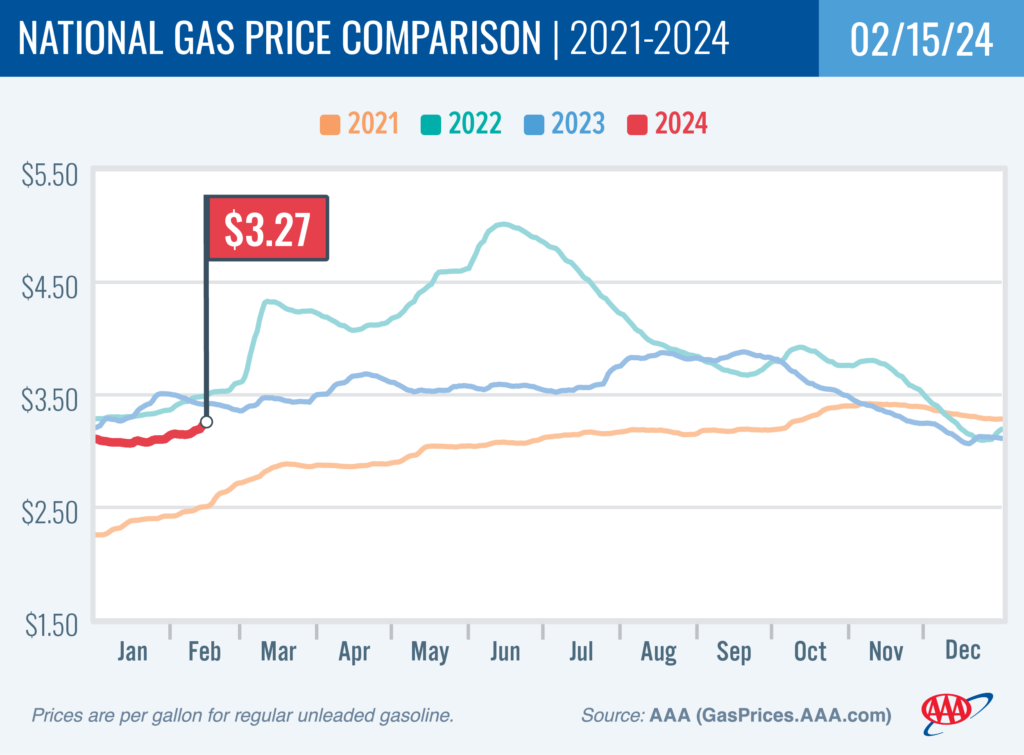WASHINGTON, D.C. — After months of barely budging more than a few cents, the national average for pump prices moved into the fast lane, surging 12 cents since last week to $3.27. A significant contributor is a shutdown at the large BP-Whiting refinery in Indiana, which has been offline for more than two weeks due to a power outage. The refinery processes 435,000 barrels of crude per day, and the shutdown has caused prices throughout the Midwest to climb, pushing the national average higher as well.
“Pump prices usually move higher this time of year, but a 12 cent jump in one week is notable,” said Andrew Gross, AAA spokesperson. “However, the refinery shutdown will likely be resolved soon, so further increases at the pump should revert to slower and lower seasonal gains.”
According to new data from the Energy Information Administration (EIA), gas demand decreased from 8.81 to 8.17 million b/d last week. Total domestic gasoline stocks declined by 3.7 million bbl to 247.3 million bbl. Lower gas demand would typically push pump prices down, but fluctuating oil prices and tight gas supply increase prices.
Today’s national average of $3.27 is 21 cents more than a month ago but 14 cents less than a year ago.

Quick Stats
- Since last Thursday, these 10 states have seen the largest increases in their averages: Ohio (+30 cents), New Mexico (+25 cents), West Virginia (+25 cents), Colorado (+20 cents), Maryland (+19 cents), Virginia (+19 cents), Pennsylvania (+19 cents), Illinois (+19 cents), North Carolina (+18 cents) and Montana (+17 cents).
- The nation’s top 10 most expensive markets: Hawaii ($4.70), California ($4.64), Nevada ($3.90), Washington ($3.89), Oregon ($3.58), Pennsylvania ($3.55), Illinois ($3.49), Alaska ($3.46), Washington, DC ($3.41) and Maryland ($3.36).
Oil Market Dynamics
At the close of Wednesday’s formal trading session, WTI decreased by $1.23 to settle at $76.64. Oil prices dropped after the EIA reported that total domestic commercial crude stocks increased significantly by 12 million bbl to 439.4 million bbl last week. The sharp increase in supply signals that oil demand could be loosening, which may also put downward pressure on prices.
Drivers can find current gas prices along their route using the AAA TripTik Travel planner.
